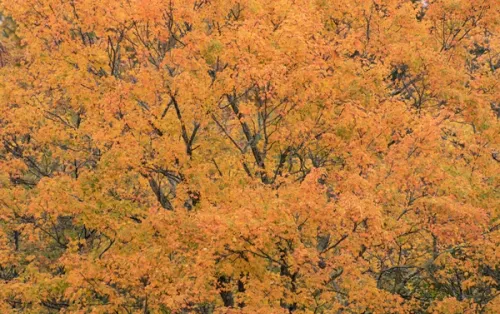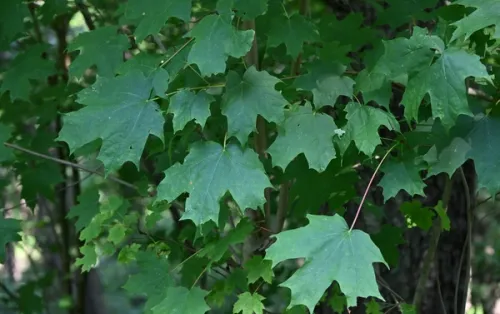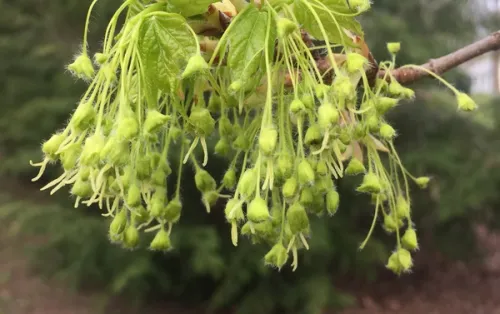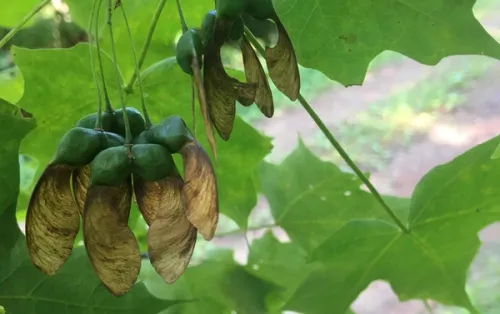Back to Glossary
Sugar Maple
Acer saccharum
Sugar Maple is a magnificent tree renowned for its beauty, longevity, and of course, sugar-rich sap. Often growing to heights of 60 to 75 feet with a dense, rounded canopy, it will put on a spectacular autumn color display once mature. In addition to its aesthetic and culinary contributions, sugar maple provides substantial habitat and food for wildlife, with its seeds, buds, and flowers supporting various birds, small mammals, and pollinators. This tree prefers deep, well-drained, fertile soils and cooler climate conditions, making it a staple in forests and landscapes across the northeastern United States and Canada. It is less suited to urban environments due to its sensitivity to pollution and soil compaction.
Details
Height480” - 960”
Spread539"
Bloom SeasonApril – April
Soil Types
Loam
Sand
Soil Moisture
Medium
Sun Exposure
Part Sun
Full Sun
Range Map
Available
Not available
Ecological Benefits
Maintenance Tips
- Requires even moisture, especially in dry conditions. Young trees benefit from regular watering to establish deep root systems.
- Prune in late winter to early spring before the sap starts to flow to maintain health and structure.
- Thrives in well-drained, slightly acidic to neutral soils rich in organic matter.
- Apply mulch around the base to conserve moisture, regulate soil temperature, and protect roots.
- Monitor for pests such as borers and diseases like leaf scorch and tar spot. Provide adequate space and optimal conditions to minimize stress.
- This species is particularly sensitive to salt and will struggle if planted too close to regularly plowed roads.









